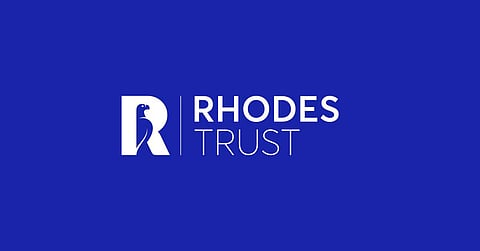

Samvida Venkatesh, a 21-year-old Bengaluru girl is one of the five Indian students who has been selected for the prestigious 2019 Rhodes Scholarship, which has won her a seat at the Oxford University in London. At Oxford, she will be pursuing an MSc by Research in Biochemistry and hopes to advance her knowledge in computational biology.
Samvida is currently pursuing her Bachelor of Arts (AB) in Molecular Biology at Princeton University and her key area of focus is laboratory science. At the university, she has worked on multiple projects such as tracking the growth of fly embryos, enumerating the differences between cancerous and non-cancerous cells, and creating visualisations of viral infection.
She has also worked as a research assistant at Professor of Molecular Biology Ileana Cristea’s lab, applying her computational skills to study viral infection and host-pathogen interactions. Teaching and research being her passions, Samvida hopes to become a professor and work in India. Edex caught up with the young science enthusiast to know more about her future plans and about her internship experiences which helped her become a Rhodes Scholar.
Excerpts from the interview:
Could you tell us more about the process of becoming a Rhodes scholar and how you prepared for it?
There are a few components to a Rhodes Scholarship application, most important among them is a personal statement and recommendation letters. The application also requires six letters of recommendation, of which some are academic and some are character references that attest to the applicant's non-academic interests and abilities. Following the written application, students are shortlisted for a technical interview with a panel of experts in their broad academic field. Candidates are then selected for the final interview, which is a 20 to 25-minute conversation with 8 to 10 highly accomplished panelists from a diverse range of careers. This is not a technical interview, but rather a chance for the applicant to demonstrate that they can hold and defend informed opinions on a variety of topics.
I would say there is no preparation specifically required for the Rhodes Scholarship — in general, all the scholars have done very well academically throughout their undergraduate careers, so it is, of course, helpful to have good grades in college and to maintain a general awareness of national and global issues of importance. While writing the essay and in preparing for the interviews, I found it helpful to reflect on how the Rhodes Scholarship would change the trajectory of my career and life, and how I could use this platform to make a difference in the world.
At Oxford, you would be taking up computational biology. Could you tell us more about the course?
I am applying for an MSc by Research in Biochemistry at Oxford, which is normally a two-year degree. Students in this degree are assigned to a specific lab and supervisor to conduct independent research in any of a wide range of biological fields such as cell biology, drug discovery, host-pathogen interactions, and so on. Computational biology is one of the techniques that I will be using to study questions of interest in biology. Unlike taught degrees, there are no official classes to attend or written examinations to complete a research degree. Rather, progress is assessed on a research report and plan at the end of the first year.
As part of your course, you would be interning under Ahmed Ahmed. Could you tell about your internship and how you think this experience will enhance your career?
I had previously worked in Professor Ahmed's lab as a research intern. The Ahmed lab studies ovarian cancer, specifically the development, progress, and resistance of cancer to therapy. During my summer internship, I applied computational tools to validate a new RNA-sequencing technique developed in the lab. When I return next year, I hope to grow as both a wet-lab and computational biologist and learn more about cancer research. Moreover, I want to become a better communicator of science by giving presentations and talks and engaging with non-scientists on my research in the lab. I am confident that this experience will train me to be an independent researcher who is able to contribute to scientific dialogue and discussion around the world.
As a graduate student at Princeton, what were your areas of focus and how has Princeton prepped you up for this scholarship?
I am in my final year of an undergraduate program at Princeton, where I intend to graduate with a Bachelor of Arts (AB) in Molecular Biology, with certificates in Computer Science and Quantitative and Computational Biology. My senior thesis research at Princeton is in the lab of Prof Ileana Cristea, studying the network of human and viral protein interaction during the course of human cytomegalovirus infection. Princeton's liberal arts curriculum combined with a strong research focus gave me an education that was both broad and deep. I have taken courses in subjects ranging from linguistics to politics to physics, while simultaneously exploring biology in depth in my classes and research.
